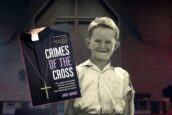
The Betrayal
Helen Dunmore, Penguin
Trust no-one!
This is a key message of The Betrayal — an intriguing novel about a couple born shortly after the Russian Revolution and who came to adulthood during the Great Terror of the 1930s.
Anna and Andrei lived through the Siege of Leningrad and had high hopes afterwards that everything would settle and be better.
These hopes were betrayed.
As the book’s title suggests, the central betrayal is of an entire people by a dictatorship. Other betrayals occur too. Neighbours inform on one another. Andrei, a doctor, is betrayed by a colleague who, to save his own neck, forces Andrei to take the case of the seriously ill son of a senior secret police officer, Volkov.
Perhaps the book’s most intriguing and troubling question of betrayal is this: Would you lie about your spouse’s adherence to government dictates if he or she begged you to? What if lying like this meant your spouse would, definitely, still be harmed — but you, almost certainly, would not be?
Anna and Andrei face this very dilemma.
In 1952, when Andrei is arrested, the pregnant Anna and her young brother Kolya (brought up by Anna and Andrei after the Siege and death of her parents) choose to flee — leaving their home and possessions.
Anna decides to give up her job and go to hide in the dacha rather than betray Andrei. He would prefer that she denounced him to ensure her own safety and the safety of their unborn child.
Dunmore’s book made me grateful that I would probably never have to face such a grievous scenario.
Short listed for the Man Booker prize, The Betrayal (a page-turner sequel to the very popular The Siege) carries deep issues at its heart, like: Who do we trust? And who would we betray given the “right” circumstances? How would we cope with 24-hour surveillance, professional intervention, imprisonment or torture? How would we react in a climate of terror?
It asks us to contemplate whether the greatest “betrayal” is mortality — that which, despite medical advances (and without faith in an afterlife) is ultimately beyond our control.
Marjorie Lewis-Jones




























































